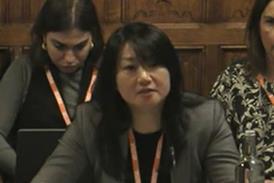Curbs on councillors remotely attending meetings could open the council to legal challenges, a body representing local government lawyers that campaigned - and even went to court - over the issue has told Whitehall.
Responding to a central government consultation on amending the law to allow remote attendance and potentially proxy voting, Lawyers in Local Government said remote attendance can help councils become more representative of their communities, and more resilient in the event of local and national emergencies.
But while the government has signalled its willingness to allow remote attendance, the consultation explores various limitations.
For instance, the government asks if formal meetings should be attended in person by at least two-thirds of members. However, LLG said a two-thirds mandate could have potential implications under the Equality Act 2010.
‘How will the issue of who attends in person and who does not be identified? Any councillor who is relying on a protected characteristic could argue that they need to attend remotely. This figure could exceed the two third majority and frustrate the ability to hold the meeting,’ LLG says.
Read more
On allowing members to attend remotely in exceptional circumstances, LLG said: ‘Exceptional circumstance would need to be very carefully considered and explicitly defined (which in itself could give rise to challenge). Who decides whether a matter constitutes an exceptional circumstance or that the test itself has been met? Should that be the chair, the monitoring officer, the head of paid service? These considerations add another layer of potential challenge.’
Allowing full remote attendance at up to half of council meetings in a 12-month calendar period 'could lead to complex mathematics and record keeping’, LLG said. ‘Would this rule apply only to meetings of the full council, or would it apply to all committees? If committees, would the 50% rule apply to each committee individually or would it be an aggregate of all committee meetings.'
LLG said many lawyers oppose the introduction of proxy voting - when a member of a decision-making body delegates their voting power to another representative to vote in their absence.
‘It is unclear how a failure to hear debate and therefore ensure an “open mind” could be adequately overcome. This is especially so in respect of regulatory meetings. The risk of legal challenge (as a body capable of being judicially reviewed) needs to be seriously considered when considering such provision,’ LLG said.
This article is now closed for comment.



























2 Readers' comments